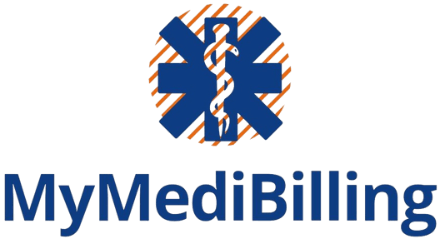Introduction
Insurance claims reimbursement is the process by which policyholders receive payment from their insurance company for covered losses or expenses. When an individual or business experiences an insurable event, such as property damage, medical treatment, or a liability claim, they file a claim with their insurance provider to request reimbursement for the associated costs. The insurance company then evaluates the claim, determines coverage eligibility, and processes the reimbursement payment accordingly.
The insurance claims reimbursement process can vary depending on the type of insurance policy and the nature of the claim. It typically involves submitting documentation of the loss or expense, communicating with the insurance company’s claims adjusters, and adhering to specific timelines and procedures outlined in the policy contract. Understanding this process is crucial for policyholders to navigate the reimbursement system effectively and expedite the receipt of funds.
Key Takeaways
- Understanding the insurance claims reimbursement process is crucial for speeding up the process.
- Tips for filing insurance claims include submitting all necessary documentation and information promptly.
- Common delays in insurance claims reimbursement can be avoided by working with insurance companies and providing accurate information.
- Documentation and information needed for smooth insurance claims reimbursement include medical records, receipts, and policy information.
- Seeking professional assistance can help expedite complex insurance claims reimbursement cases.
Tips for Filing Insurance Claims for Faster Reimbursement
Accurate Documentation is Key
It is essential to accurately and thoroughly document the extent of the damage or loss to support the claim.
Maintaining Open Communication
Additionally, policyholders should maintain open communication with their insurance company throughout the claims process, promptly responding to any requests for additional information or clarification. Providing clear and concise information can help streamline the evaluation and reimbursement process, ultimately leading to faster claim resolution.
Staying Organized for a Smoother Experience
Moreover, staying organized and keeping records of all communications and documents related to the claim can facilitate a smoother reimbursement experience.
Common Delays in Insurance Claims Reimbursement and How to Avoid Them
Delays in insurance claims reimbursement can occur due to various factors, including incomplete or inaccurate documentation, disputes over coverage, or procedural errors. Policyholders can avoid these delays by ensuring that all required documentation is submitted accurately and promptly. It is crucial to review the insurance policy to understand the coverage limits, exclusions, and any specific requirements for filing a claim.
Furthermore, engaging in proactive communication with the insurance company and promptly addressing any issues or discrepancies that arise can help prevent unnecessary delays. Seeking clarification on any ambiguous policy language or seeking assistance from a professional, if needed, can also mitigate potential obstacles in the reimbursement process. By being proactive and thorough in their approach, policyholders can minimize delays and expedite the receipt of reimbursement from their insurance company.
Working with Insurance Companies to Expedite Reimbursement
| Insurance Company | Reimbursement Process | Turnaround Time |
|---|---|---|
| ABC Insurance | Online submission | 2 weeks |
| XYZ Insurance | Paper submission | 3 weeks |
| 123 Insurance | Phone submission | 4 weeks |
Collaborating with insurance companies to expedite reimbursement involves maintaining clear and transparent communication while adhering to the established claims process. Policyholders should be proactive in providing all necessary information and documentation requested by the insurance company, responding promptly to inquiries, and following up on the status of their claims. Additionally, understanding the internal procedures and timelines of the insurance company can help policyholders navigate the reimbursement process more effectively.
By familiarizing themselves with the specific requirements and expectations of their insurer, policyholders can align their actions to facilitate a smoother and faster reimbursement experience. Building a cooperative relationship with the claims adjusters and representatives can also contribute to expediting the resolution of the claim.
Documentation and Information Needed for Smooth Insurance Claims Reimbursement
Smooth hinges on the availability of comprehensive documentation and accurate information to support the claim. Policyholders should gather and organize all relevant records, including receipts, invoices, photographs of damages, and any other evidence that substantiates the loss or expense being claimed. Providing a detailed account of the incident or event leading to the claim is essential for a successful reimbursement process.
In addition to tangible evidence, policyholders should be prepared to provide personal information, such as contact details, policy numbers, and any relevant background information related to the claim. Being thorough and transparent in disclosing all pertinent details can facilitate a smoother evaluation of the claim by the insurance company. By ensuring that all necessary documentation and information are readily available, policyholders can enhance their chances of expediting the reimbursement process.
Strategies for Negotiating Faster Insurance Claims Reimbursement
Negotiating faster insurance claims reimbursement involves advocating for fair treatment and prompt resolution of the claim with the insurance company. Policyholders can leverage their understanding of the policy coverage and applicable laws to assert their rights and negotiate for timely reimbursement. Presenting a well-documented and compelling case supported by evidence can strengthen their position during negotiations.
Moreover, engaging in constructive dialogue with the claims adjusters or representatives and demonstrating flexibility in finding mutually agreeable solutions can expedite the negotiation process. Being persistent yet professional in advocating for a fair and expedited resolution can yield positive outcomes in expediting. By employing strategic negotiation tactics and maintaining a cooperative approach, policyholders can work towards achieving faster reimbursement from their insurance company.
Seeking Professional Assistance for Complex Insurance Claims Reimbursement Cases
In complex insurance claims reimbursement cases involving intricate legal or technical issues, seeking professional assistance from legal experts or public adjusters may be beneficial. These professionals possess specialized knowledge and experience in navigating complex insurance claims processes and advocating for policyholders’ interests. They can provide valuable guidance in interpreting policy language, assessing damages, and negotiating with insurance companies.
Furthermore, professional assistance can help alleviate the burden on policyholders by managing the intricacies of the claims process on their behalf. Legal experts and public adjusters can effectively represent policyholders’ interests, handle communications with the insurance company, and pursue optimal reimbursement outcomes. In cases where the complexity of the claim presents challenges for policyholders, seeking professional assistance can be instrumental in expediting the resolution of their insurance claims reimbursement.
Conclusion
Understanding the insurance claims reimbursement process, adhering to best practices for filing claims, mitigating common delays, collaborating with insurance companies, compiling comprehensive documentation, employing negotiation strategies, and seeking professional assistance when necessary are essential elements in expediting. By navigating these aspects effectively, policyholders can streamline the reimbursement process and achieve faster resolution of their claims with their insurance company.


